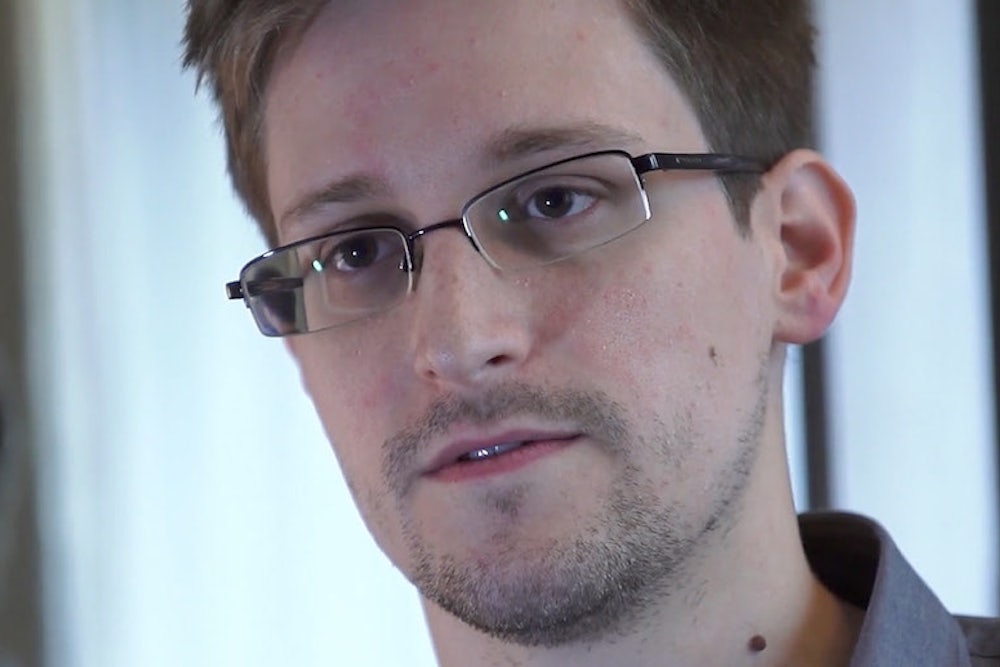Responding to a prominent American politician’s claims that he knowingly acted as a Russian asset in leaking information about the National Security Agency, Edward Snowden insisted in an interview published Tuesday evening by The New Yorker’s Jane Mayer that he “clearly and unambiguously acted alone, with no assistance from anyone, much less a government.”
Rep. Mike Rogers, the Republican chairman of the House Intelligence Committee, had alleged over the weekend that “we believe [Snowden] had some help.”
Curiously, much of Snowden’s interview—at least those parts Mayer reports—is devoted not to insisting that he did not work with any government but to attempting to argue, with appeals to logic, that the evidence suggests he did not work with any government. “Spies get treated better than that,” he says, in reference to being forced to wait 40 days at a Russian airport. Mayer reports, “Snowden went on to poke fun at the range of allegations that have been made against him in the media without intelligence officials providing some kind of factual basis: “‘We don’t know if he had help from aliens.”’ “‘You know, I have serious questions about whether he really exists.”’ These are all arguments people who aren’t Edward Snowden could also make. Only Edward Snowden could know for sure that he acted alone.
In a sense, Snowden and Rogers deserve each other. Both lack epistemological humility, and neither hesitates to act on their unfounded confidence. Despite his high clearance, Rogers does not appear to have any real evidence that Snowden was in cahoots with someone or something else. And Snowden, of course, leaked untold documents all while insisting that it was so carefully done that the leak could not possibly do any harm. Snowden could say for sure that he acted alone. He cannot say for sure, however, that, say, “There’s a zero percent chance the Russians or Chinese have received any documents.” Yet that’s exactly what he told The New York Times’ James Risen late last year.
Sen. Dianne Feinstein, the Democratic chair of the Senate Select Committee on Intelligence, had this to say about the possibility of Snowden working for a foreign government over the weekend: “He may well have. We don’t know at this stage.” That seems sensible. It is irresponsible that Rogers, with access to the same intelligence, would express less uncertainty. And it is plain weird—or an example of extraordinary arrogance—that Snowden, who rightly tells us we should not trust our government, so confidently expects us to trust him.
